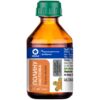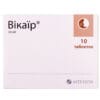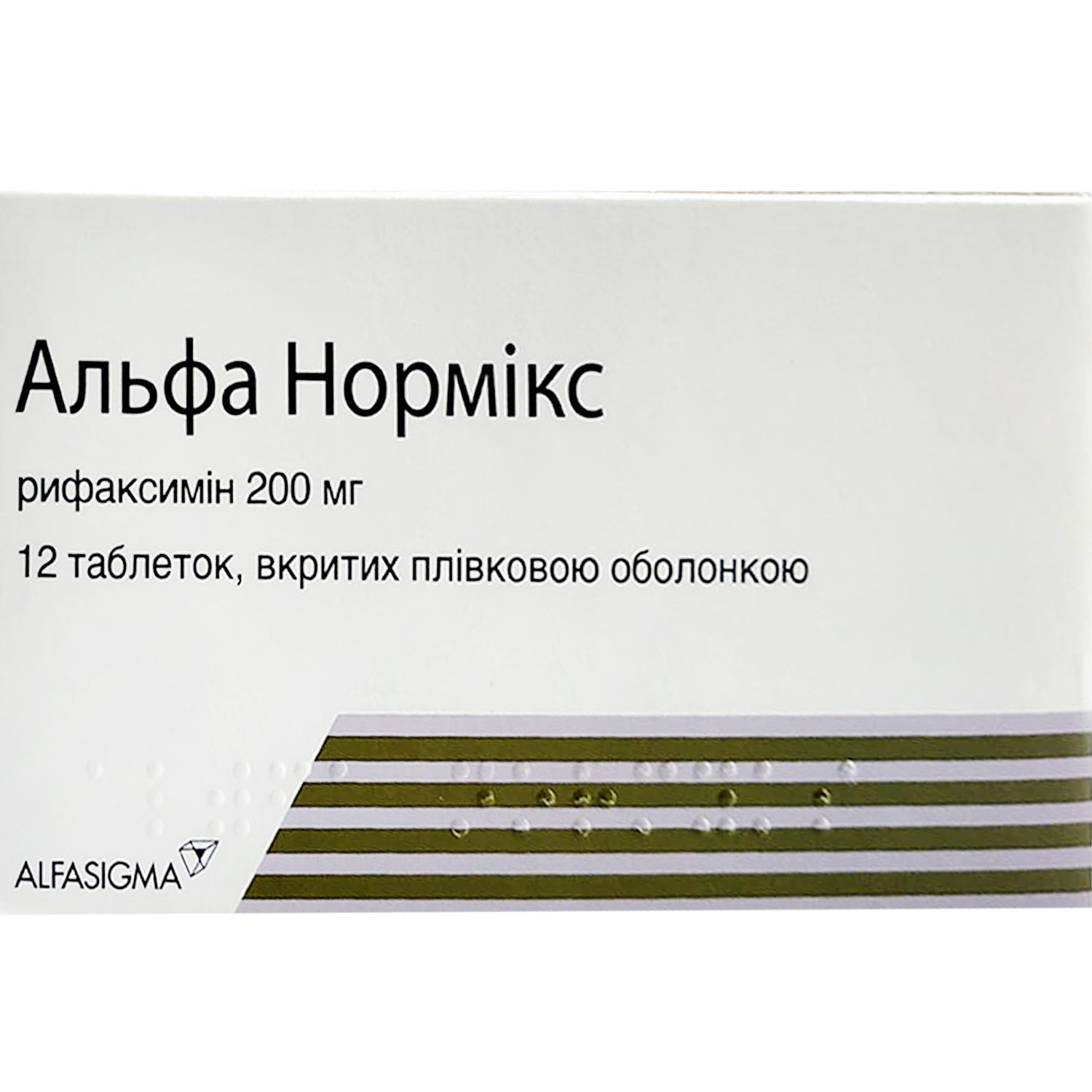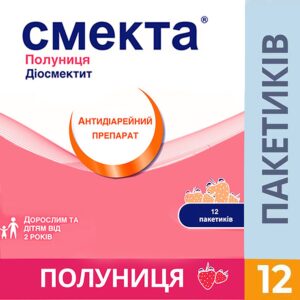
Alfa Normix film-coated tablets 200 mg blister 12 pcs.
$62.32
Alfa Normix (rifaximin) – medication for prevention and treatment of gastrointestinal infections, approved for adults and teens 12+.
Alfa-normix is a drug used for the treatment of intestinal infections
- gastrointestinal infections caused by bacteria sensitive to rifaximin, such as acute gastrointestinal infections and travelers’ diarrhea;
- small intestinal bacterial overgrowth syndrome;
- hepatic encephalopathy;
- diverticular disease of the intestine (diverticulitis) in the acute stage and chronic inflammation of the intestine;
- prevention of infectious complications during colorectal surgery.
Composition
- active ingredient: rifaximin;
- 1 film-coated tablet contains 200 mg of rifaximin;
- excipients: sodium starch glycolate (type A), glycerol distearate, colloidal anhydrous silica, talc, microcrystalline cellulose, hypromellose, titanium dioxide (E 171), disodium edetate, propylene glycol, red iron oxide (E 172).
Contraindication
- Hypersensitivity to rifaximin, other rifamycin derivatives or to any of the excipients; hypersensitivity reactions include exfoliative dermatitis, angioedema and anaphylaxis;
- intestinal obstruction;
- severe ulcerative lesions of the intestine.
Adverse reactions
Infections and infestations – uncommon: candidiasis, herpes infection, nasopharyngitis, pharyngitis, upper respiratory tract infection. Frequency unknown: clostridial infection.
Blood and lymphatic system disorders – uncommon: lymphocytosis, monocytosis, neutropenia. Frequency unknown: thrombocytopenia.
Immune system disorders – frequency unknown: anaphylactic reactions, hypersensitivity reactions.
Metabolism and nutrition disorders – uncommon: decreased appetite, dehydration.
Mental disorders – uncommon: abnormal sleep, depressed mood, insomnia, nervousness.
Nervous system disorders – common: dizziness, headache. Uncommon: hypoaesthesia, migraine, paraesthesia, sinus headache, drowsiness. Frequency not known: pre-syncope.
Disorders of the organ of vision – uncommon: diplopia.
Hearing and inner ear disorders – uncommon: earache, vertigo.
Cardiac disorders – uncommon: palpitations.
Vascular disorders – uncommon: increased blood pressure, hot flashes.
Gastrointestinal disorders – common: abdominal pain, constipation, sudden urge to defecate, diarrhea, flatulence, abdominal distension, nausea, vomiting, rectal tenesmus. Uncommon: upper abdominal pain, ascites, dry lips, dyspepsia, gastrointestinal motility disorders, hard stools, stools with blood or mucus, taste disorders.
Method of application
Adults and children over 12 years of age: from 1 tablet 3 times a day to 2 tablets 2-3 times a day (corresponds to a daily dose of 600-1200 mg of rifaximin).
The duration of treatment should not exceed 7 days and depends on the clinical response to treatment. A repeated course of treatment can be carried out with a break of 20-40 days.
The doses used and the frequency of administration may be changed on the recommendation of a doctor.
Take orally with a glass of water. The drug can be taken regardless of meals.
Application features
Use during pregnancy or breastfeeding
As a precautionary measure, the use of rifaximin during pregnancy is not recommended.
It is not known whether rifaximin and its metabolites are excreted in human milk, therefore a risk to the breastfed infant cannot be excluded. Therefore, a decision should be made whether to discontinue breast-feeding or to discontinue/abstain from the drug during breast-feeding, taking into account the benefit of breast-feeding for the child and the need for therapy for the mother.
Children
Since the efficacy, dosage, and safety of rifaximin in the treatment of children under 12 years of age have not been established, there are no dosage recommendations for these patients.
Ability to influence reaction speed when driving vehicles or other mechanisms
If dizziness or drowsiness occurs during treatment with the drug, you should refrain from driving vehicles and operating other mechanisms.
Overdose
In clinical trials in patients with traveler’s diarrhea, doses of rifaximin up to 1800 mg/day were tolerated without any severe clinical manifestations. Doses of up to 2400 mg rifaximin per day for 7 days in patients and healthy volunteers did not result in any significant clinical symptoms associated with the use of high doses.
In case of overdose, symptomatic and supportive treatment is recommended.
Storage conditions
Does not require any special storage conditions. Keep out of the reach of children.
You may also like






Reviews
There are no reviews yet.